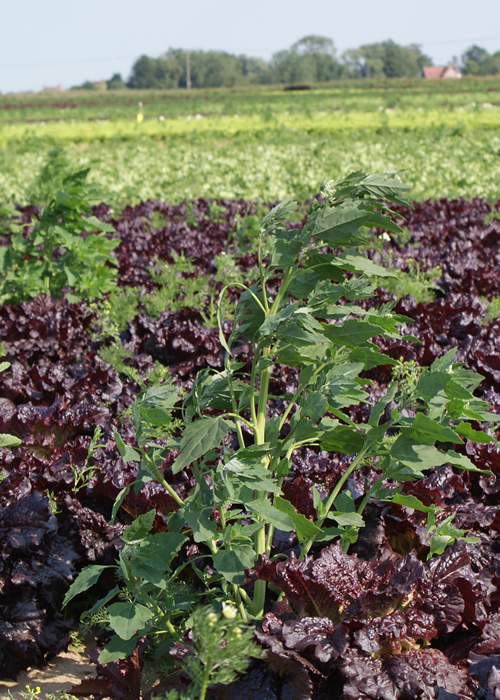
Only those potato growers who keep abreast of the latest research and agronomy developments will manage the challenges they face in future as a result of the review of the EU Pesticide Directive (91/414/EEC) and implementation of the Water Framework Directive (WFD).
Growers face a potential drop in potato gross margins of more than a third from measures brought in by WFD, according to a new report compiled by ADAS for Potato Council. The EU Pesticide review alone could reduce margins by 15%.
"The good news is that our research and knowledge transfer strategy is a very robust response to the new regulations we face," reports Potato Council’s head of R&D Mike Storey. "But every grower and industry representative need to play their part to bring this to fruition."
The Potato Council has carried out a comprehensive analysis of the report to identify the research, knowledge transfer and stewardship priorities. It has also looked at linkages with strategic research supported by Government, opportunities for cross-sector collaboration with Agricultural and Horticultural Development Board (AHDB) partners and the responsibility of agrochemical manufacturers. "We need to ensure the potato sector is in as strong a position as it can be to manage the serious changes it faces."
The new report, Pesticide availability for potatoes following revision of Directive 91/414/EEC: Impact assessments and identification of research priorities is the most thorough assessment made to date of the likely impact of the directives. As pesticide use comes under scrutiny like never before, this will translate into a severe hit on potato gross margins from changes in plant protection product (PPP) availability. The report was presented to growers at Potato Council’s East Midlands Potato Day in Cambridgeshire recently by ADAS’ James Clarke. He recommended a proactive involvement in stewardship measures as the key step the industry should take to mitigate the impact.
The report reveals potato profits will be challenged in five key control areas: blight, aphids and virus, potato cyst nematode (PCN), slugs and weeds. Blight fungicides that lose approval under the Regulation Directive could knock as much as £28m off growers’ gross margins, for example.
But Potato Council has a comprehensive programme of research and knowledge transfer activities on blight, notes Dr Storey. The on-going Fight Against Blight (www.potato.org.uk/blight) and research into changing blight populations programmes include £250,000 of fresh funding. Keeping abreast of these activities should reduce growers’ reliance on mainstay blight sprays mancozeb and maneb, that are threatened with revocation as early as 2016.
"There is also new LINK-funded work, carried out by SAC, ADAS and SCRI, that will specifically help growers adopt an integrated approach to blight control, required under the new directive."
New environmental measures brought in under WFD will hit control of PCN and slugs, with the potential impact on the industry being £55m and £53m respectively. The cost of weed control restrictions could be as much as £13.5m, while growers who fail to respond to new developments in aphid and virus control could see margins suffer by as much as £5m.
New research is being rolled out to address these challenges, points out Dr Storey. "We have issued a tender to update the PCN management model, developed by SCRI, and have recently commissioned a new project on aphid control. We are also assessing work carried out for Potato Council by John Keer on herbicide replacements for paraquat and linuron – this has already yielded useful results."
Identifying opportunities for greater collaboration with other AHDB partners, Dr Storey notes there is scope to explore rotational management across sectors to cut the industry’s reliance on pesticides further. Metaldehyde use is already under scrutiny and Potato Council fully supports the current industry-run metaldehyde stewardship programme. "It involves improvements in pellet formulation and their application, alongside an effective stewardship programme for users – responsibilities that the companies concerned are addressing," he notes.
Underlying the Potato Council strategy is a continuing need for an accurate evidence base of the impact on the industry, to ensure any regulation keeps pace with what the industry can achieve. "We’re considering a survey of pests and diseases," adds Dr Storey.
"But all of our activities will be ineffective unless the industry truly engages with new measures that will mitigate the potential losses. It’s simply a question of using the resources available to you – attend meetings, as well as requesting our literature.
"The industry has been tasked to demonstrate one of the biggest shifts in its use of plant protection products it has ever had to take – ignore the call and crop profitability will suffer," concludes Dr Storey.
